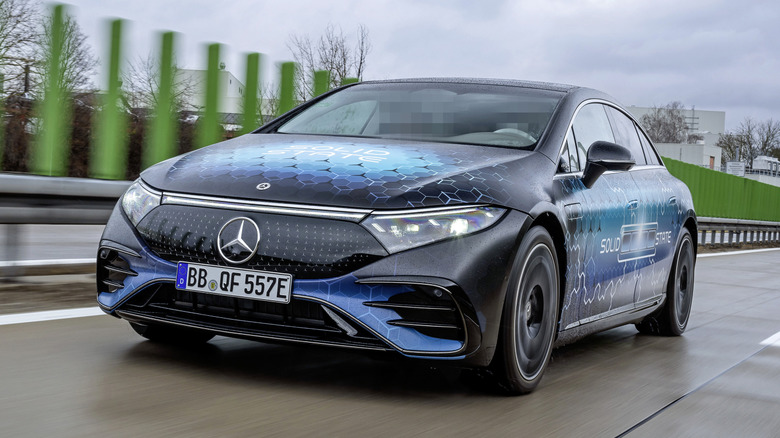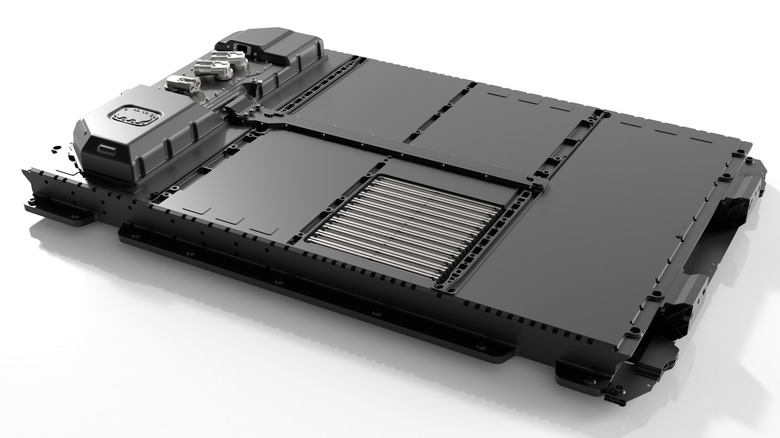Mercedes Starts Testing Solid State Batteries With Huge Range Gains
There's some really good news for folks who have been on the fence about EVs because of their range: Mercedes-Benz has officially started road-testing a prototype EQS with a solid-state battery. This is huge news and probably the biggest development in EV battery technology since the adoption of lithium-ion batteries.
The German automaker and a U.S.-based battery startup, called Factoral Energy, have developed a prototype EQS with an experimental solid-state battery onboard and it's already out on the road around Stuttgart. The two companies said it's the "world's first solid-state battery vehicle from a global OEM." In a release, MB said the EQS is expected to hit up to 620 miles of range on the WLTP cycle – a 25 percent increase compared to the EQS 450+ with a 118 kWh battery. Mercedes says there's a possibility that the potential range increase could be as much as 40 percent eventually.
On average, WLTP range figures are about 22 percent higher than EPA estimates, according to InsideEVs. Still, that means the EQS with a solid-state battery can go up to about 527 miles on a single charge. That's nothing to sneeze at. Of course, there's a lot of room to grow. The Lucid Air Grand Touring, with its conventional battery pack, can travel up to 516 miles, according to the automaker.
It's not just range benefits, though. There are quite a few weight, packaging and efficiency advantages to solid-state batteries. Case in point: that extra 25 percent of range comes despite the fact the new pack is the exact same size and weight as the current lithium-ion pack found in the regular EQS.
Unlike traditional packs, solid-state batteries use a solid electrolyte instead of a liquid one. That increases cell safety and allows for new anodes like lithium metal – significantly outperforming conventional lithium-ion cells.
How solid-state batteries work
Here's more on this fascinating, yet complicated, technology from the folks who know how it works at Mercedes:
They also enable next-level energy densities, in combination with a lithium-metal anode. The solid-state technology has the potential to increase the gravimetric energy density for vehicle batteries up to 450 Wh/kg at the cell level and thereby increasing the driving range. Gravimetric energy density refers to the amount of energy stored in a battery cell per unit mass. This metric is crucial for evaluating the efficiency and performance of battery cells, especially in applications where weight is a critical factor, such as in electric vehicles.
Factorial-Benz has been working with Mercedes-Benz since 2021 to develop the new tech, but it's not the only automaker it has teamed up with. It also has deals with Stellantis and Hyundai to develop solid-state battery cells, according to InsideEVs. There's even apparently a demo fleet of Dodge Charger Daytona EVs equipped with Factorial's semi-solid-state batteries that are expected to start road testing next year.
The future looks bring for eclectic vehicles right now. Let's just hope the U.S. government doesn't do too much to derail all of this momentum.

